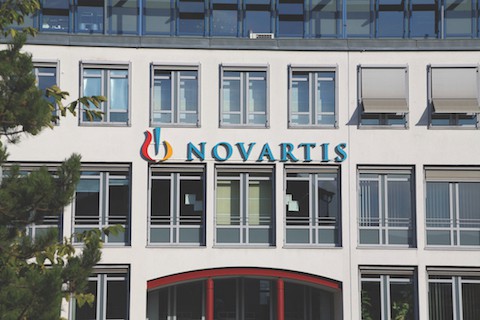
Novartis’ investigational radioligand therapy 177Lu-PSMA-617 hit both primary endpoints in a phase 3 trial in patients with advanced prostate cancer.
The phase 3 VISION study, an open-label study evaluating the efficacy and safety of 177Lu-PSMA-617 in patients with progressive PSMA-positive metastatic castration-resistant prostate cancer (mCRPC), compared the radioligand therapy plus best standard of care (SoC) to SoC alone.
In this trial, 177Lu-PSMA-617 met the primary endpoints of overall survival and radiographic progression-free survival, with significant improvements on both these markers.
The detailed results from the VISION trial are due to be presented at an upcoming medical meeting and included in regulatory submissions in the US and EU.
177Lu-PSMA-617 is a type of precision medicine that combines a targeting compound – ligand – and a therapeutic radioisotope.
Once in the blood stream, the therapy binds to prostate cancer cells that express PSMA – a transmembrane protein – with high tumour-to-normal tissue uptake.
After 177Lu-PSMA-617 binds to these cells, emissions from the radioisotope damage tumour cells and impact their ability to replicate which can trigger cell death.
In a statement, Novartis said this therapeutic approach limits damage to the surrounding normal tissue while enabling targeted delivery of radiation directly to the tumour.
“Patients with metastatic castration-resistant prostate cancer have a less than one in six chance of surviving for five years and need new treatment options. This groundbreaking data confirms our belief in the potential of 177Lu-PSMA-617 to reimagine outcomes for these patients through phenotypic precision medicine. We intend to submit this data to regulatory authorities as soon as possible,” said John Tsai, head of global drug development and chief medical officer for Novartis.
“We would like to thank the patients who volunteered to participate in this study as well as the clinical teams at each of the trial sites. We would not be able to realise our commitment to reimagining medicine without the partnership of patients and their families,” he added.
Novartis gained 177Lu-PSMA-617 as part of its $2.1bn acquisition of Endocyte, which had a focus on radiopharmaceutical drugs for cancer, in October 2018.
At the time, Novartis said radiopharma was a “key growth driver” for its business and that Endocyte offered “significant sales potential” from 177Lu-PSMA-617, particularly if its use can be extended into earlier-stage prostate cancer, as well as early-stage development programmes.




